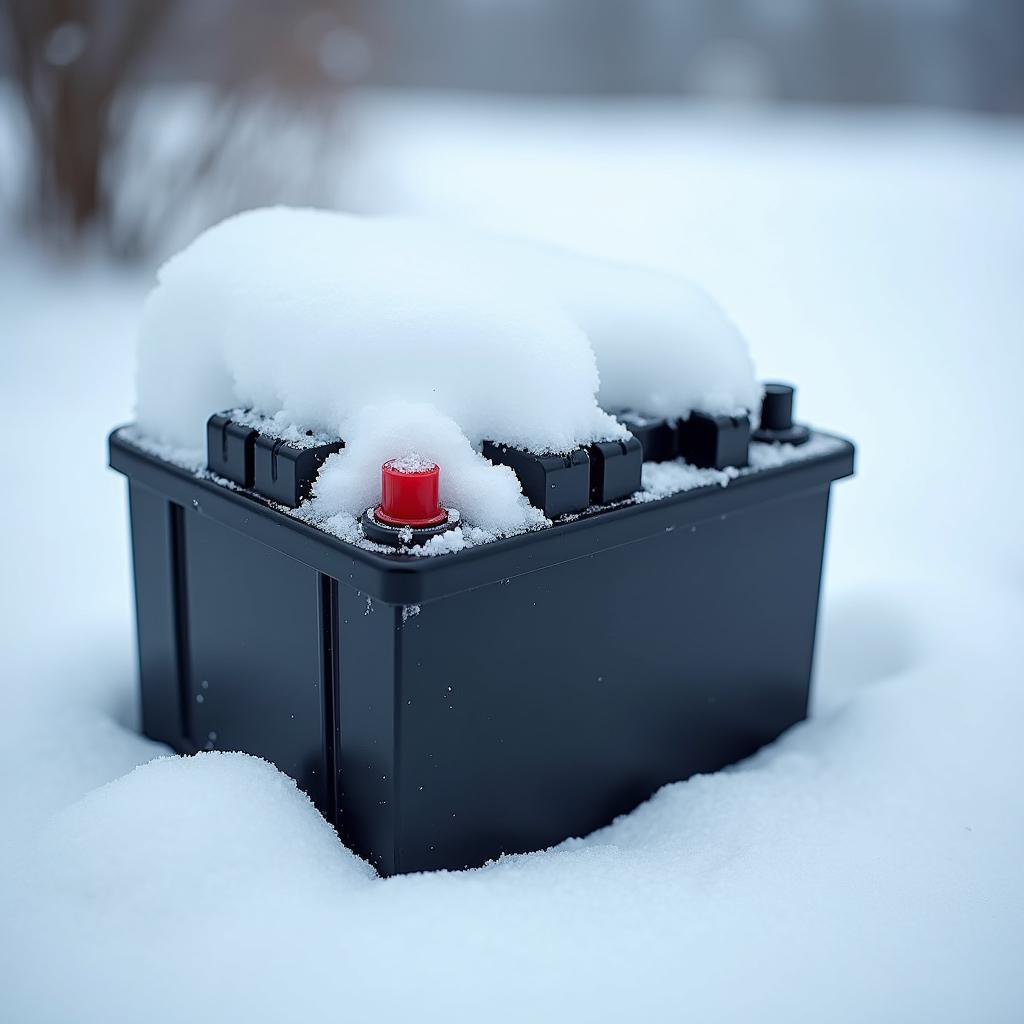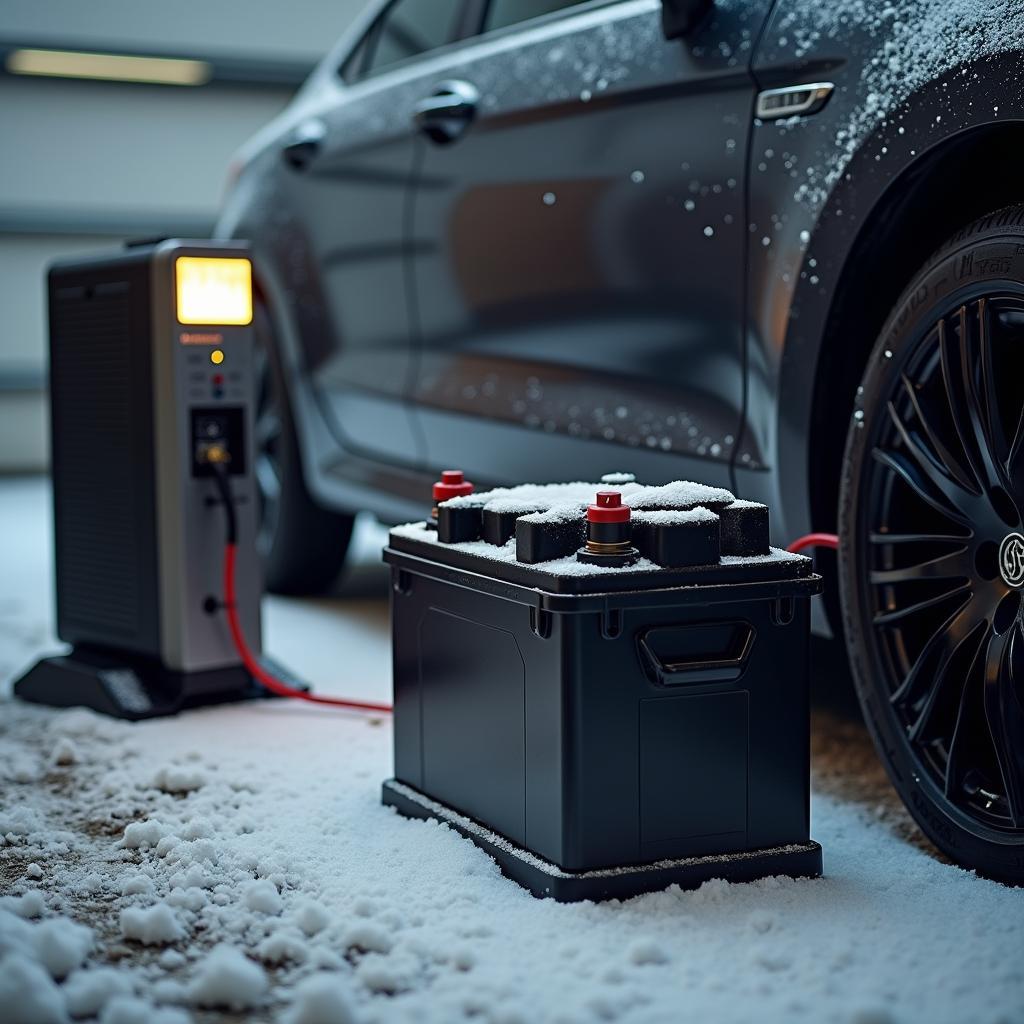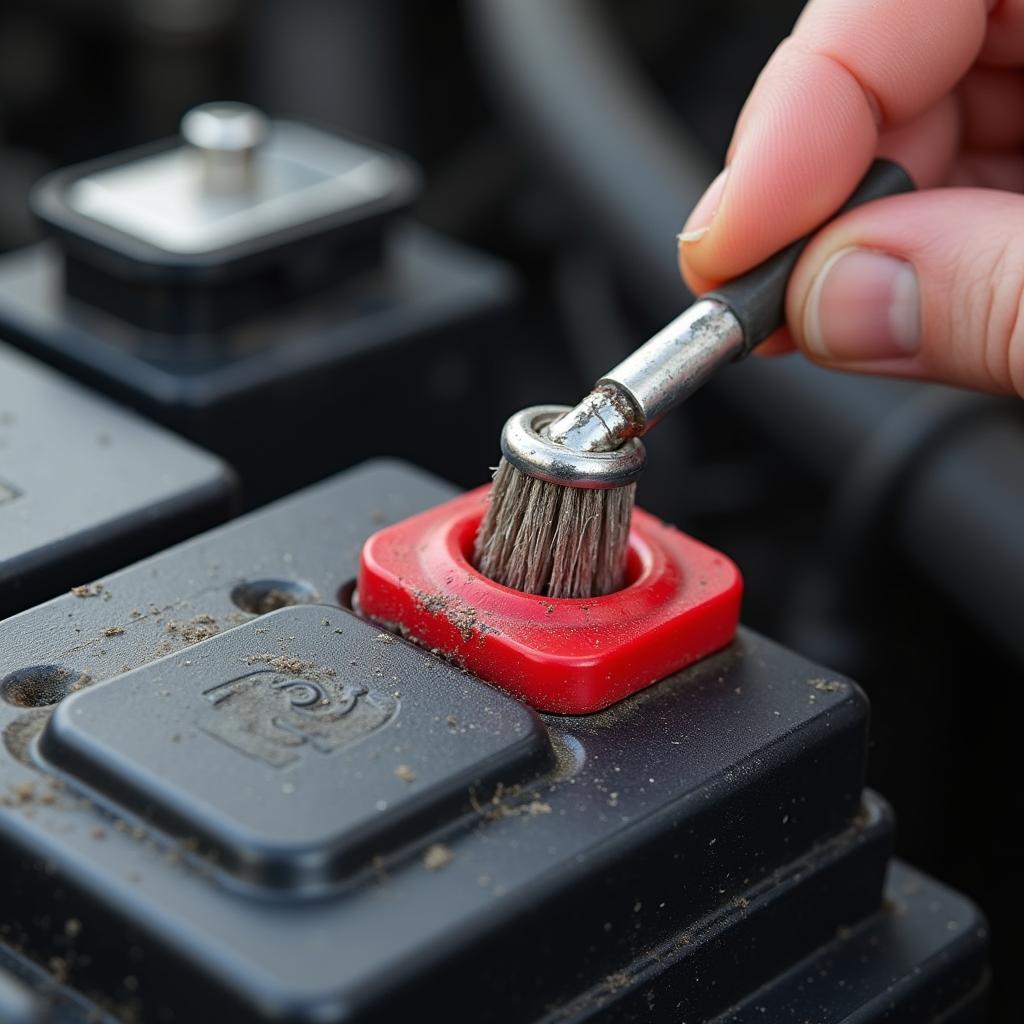Winter is just around the corner, bringing icy temperatures that can put a significant strain on your vehicle. The car battery, in particular, is sensitive to cold and can quickly lose power. But don’t worry, with our tips and tricks, you can effectively protect your car battery from freezing temperatures and start your day trouble-free.
 Car battery being protected in winter
Car battery being protected in winter
Ever gone to your car in the morning and nothing happened? The starter only turns sluggishly and the only sound is a pathetic clicking? Your car battery is probably weakened by the cold. But why is that? At low temperatures, the chemical reaction within the battery slows down, which significantly reduces the starting power.
 Charging a car battery in a cold garage
Charging a car battery in a cold garage
Additionally, the engine needs more energy to start in the cold because the engine oil becomes thicker. This double effect can cause your battery to reach its limits faster in winter.
But how can you effectively protect your car battery in winter? First, you should ensure that your battery is in good condition. Have the battery voltage and charge state checked regularly at a workshop. A rule of thumb is that the battery voltage should be at least 12.4 volts when the engine is off.
In addition to regular checks, there are other measures you can take to protect your car battery from the cold:
Practical Tips for Protecting Your Car Battery in Winter
- Park your vehicle in the garage whenever possible. The temperature is usually higher here than outdoors, which spares the battery.
- Ensure good insulation for the battery. A special battery thermal cover or a simple blanket over the battery can already make a difference.
- Avoid short trips. On short drives, the battery doesn’t have enough time to fully recharge. Ideal trips are at least 15 minutes long.
- Turn off unnecessary consumers like seat heating, blower, or rear window defroster before starting the engine. This makes more starting power available to the battery.
- Check your battery terminals for corrosion. Corroded terminals can hinder current flow and reduce the battery’s starting power. Clean the terminals if necessary with a wire brush and some battery acid.
 Cleaning car battery terminals
Cleaning car battery terminals
Besides these practical tips, you should also make sure to charge your car battery correctly. In winter, it can be useful to recharge the battery with an external charger, especially if you don’t use your vehicle for extended periods.
Frequently Asked Questions About Car Batteries and Cold Weather
- How long does a car battery last in winter? The lifespan of a car battery depends on various factors, such as the quality of the battery, driving profile, and weather conditions. Generally, the lifespan of a car battery is between 4 and 6 years. However, in winter, the lifespan can be shortened due to the cold and increased strain on the battery.
- Can a car battery explode in the cold? Yes, a car battery can explode in the cold, but this is very rare. An explosion can be caused, for example, by improper handling of the battery, a battery defect, or sparking at the terminals.
- How much does a new car battery cost? The cost of a new car battery varies depending on the vehicle model and battery type. However, you should generally expect costs between $50 and $200.
Other Interesting Topics About Your Vehicle
- Are you interested in the proper care of your car battery in winter? You can find more information on our Battery Cold page.
- Did you know that martens can also be dangerous to your car battery? Learn more on our Audi Marten Repellent Battery Change page.
- Seals and locks are particularly stressed in winter. Tips and tricks for maintenance can be found on our Locks Seals page.
If you have questions about car batteries or need support with your vehicle maintenance, our automotive experts are happy to assist you. Simply contact us via our website!

